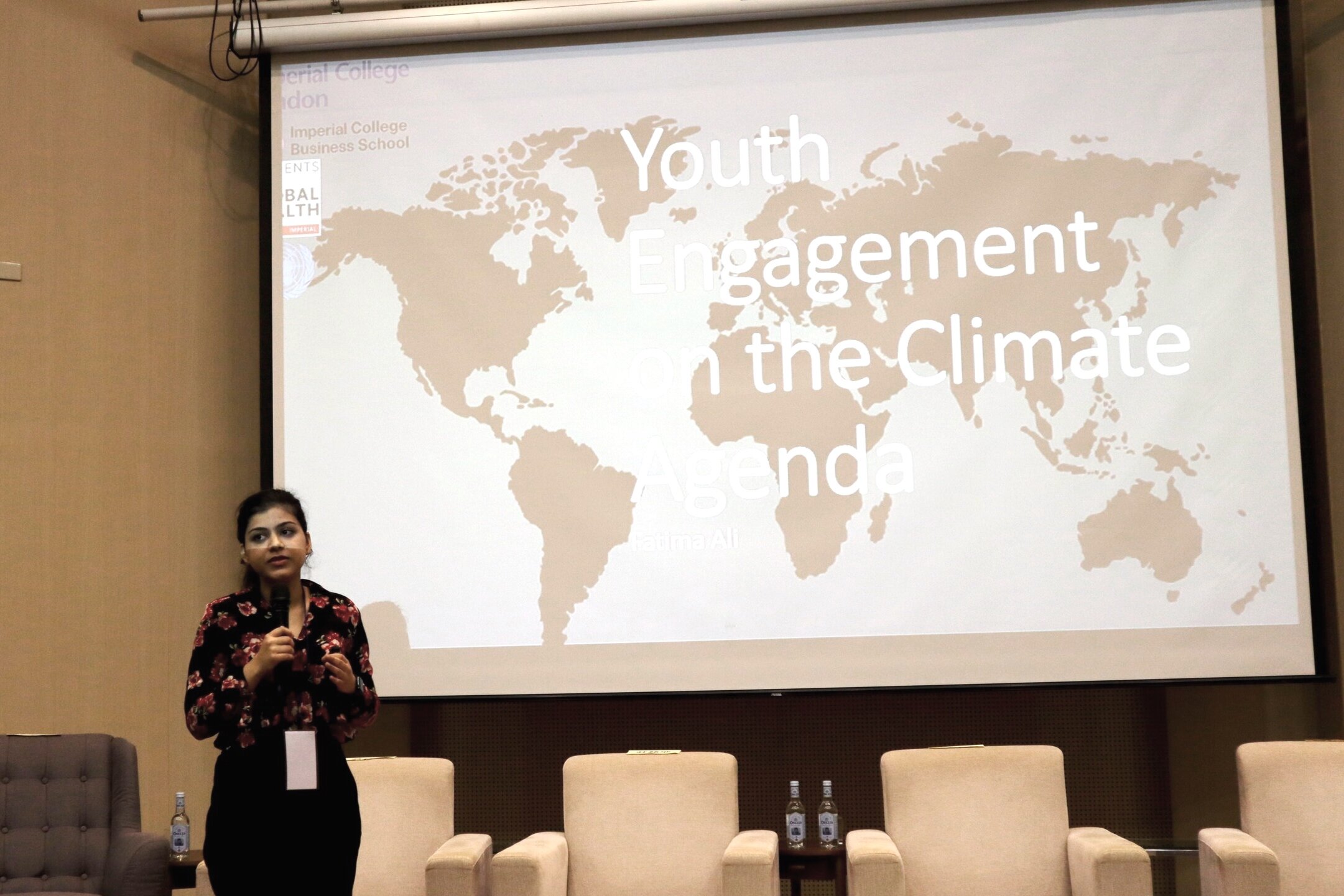The EU-Taiwan Forum on Youth Engagement in Climate Action, set to precede the UN Climate Summit, aimed to allow key ministers and members of the community to engage with the youth voice and promote cross-generational and cross-disciplinary dialogue. I had the honour of being invited to speak at this international stage as a keynote speaker and represent UK youth whilst in Taiwan. The forum included discussions and remarks from different sectors, including government ministers, private organisations, academia, youth groups, EU country representatives and their youth delegates.
The quality of the discussions that took place during the forum and side meetings were encouraging. It was made clear that the greatest challenges we face with regards to climate change in our increasingly complex world, all have the unabated aspiration for equity at heart. Climate issues that challenge human rights should be a concern for all – particularly in our globalised world with unprecedented uncertainty, interconnectedness and migration. The risks of climate change also lie in the inequalities, disenfranchisement and marginalisation of vulnerable groups; as these groups are disproportionately affected but least responsible.
Before the Climate Action Forum, I also had a variety of other opportunities, including meeting Yang Tze Chin, a 12-year-old Taiwanese youth activist. He explained that whilst he was first inspired by Greta Thunberg to start the Fridays for Future school strikes in Taiwan, he still has many social and political barriers to overcome in order to intrinsically motivate more young people to become agents of change for the climate agenda.
After meeting Audrey Tang, Taiwan’s Digital Minister, I was truly taken aback by her iconoclastic approach to politics and her refreshing radical transparency protocol for all meetings. This is especially important in Taiwan, where climate disinformation campaigns are becoming increasingly sophisticated. We also spoke about strategies to encourage community-based climate policy creation, diffusion and adaptation. It was wonderful to hear many of the issues I raised in our meeting being directly translated in Audrey Tang’s speeches addressing representatives at the UN Climate Summit.
Given my background in medicine, the impact of climate change on health equity is a particular focus for me. Climate change and inequality are locked in a complex vicious cycle. Whilst inequalities determine the disproportionate negative effects of climate hazards on people at disadvantage, the impact of climate hazards in turn results in greater inequality. Therefore, to holistically tackle climate change, we must challenge structural injustices too. As a driving economic engine of many national economies, the healthcare sector has a unique opportunity to illuminate the path forward. Consideration of environmental risk factors in exacerbating health inequality is vital in ensuring wider socio-political support for endorsing appropriate legislative action and upholding standards for environmental health protection.
The responsibility for youth engagement in the climate agenda is a two-way street. Figures in climate change and politics must empower their youth. Young people are often touted as the future – future decision makers, future scientists or future leaders, but the narrative fails to acknowledge that young people are also the present. Today, 50% of people globally are under the age of 30. Thus, meaningful youth participation for the climate agenda is essential and must go beyond just being a tick box exercise. Young people belong in all places where decisions are made as they will bear the burden of climate change over the course of their lifetimes, with future generations especially being impacted more severely. In order to achieve meaning youth participation in climate action, we can start by following three fundamental strategies: investing in youth engagement on the climate agenda, creating sustainable mutual partnerships and reforming organisational ethos to improve accessibility for young people. With COP26 just around the corner, we all have a responsibility to take a leading role in helping promote an increased individual and global effort to tackle climate change.
While reflecting on this wonderful opportunity, I have learnt a lot about myself as a leader and about leadership in general. Everyday leadership is not always observable. Whilst I was in Taiwan to speak about my own experiences, I made sure to shine light on the phenomenal accomplishments my peers have achieved in their own communities – though this work may currently be unrecognised, it continues to make great strides towards a more prosperous future. Developing as a leader is not only a personal process but also a collaborative one, which involves uncertainty along with experience, authenticity and the drive to make a positive contribution. Leaders in climate action must learn to consider insights from different perspectives, values, experiences, beliefs and appreciate the larger context within which they operate.
The success of climate youth groups, and individual activists alike, is a beautiful reminder that the fate of humanity, in this defining threat of our time, depends on also fostering the youth and underrepresented voice and paving the way for meaningful mutual prosperity. We all have a responsibility to create further urgency and momentum for the climate agenda, as the repercussions for falling short would be so catastrophic that our world would be unrecognisable.
*NB Title photo is from a BBC documentary screening event was independently run by the British Office in Taipei, and is not part of the EU Climate Action Week activities.
Fatima Ali is a fifth year medical student at Imperial College London who has also undertaken a degree in Business Management in Healthcare at Imperial College Business School. As the UN Humanitarian Affairs Youth Peace Ambassador to the UK she engages with health-peace policy and climate change policy at a national and international level. Fatima also represented the UK at the UN ECOSOC Youth Forum where she addressed the world-wide youth ministers on issues of climate change and health. She is President of a youth group called Students for Global Health which engages the youth locally, through education and advocacy, and represents UK medical students at an international level. She is interested in public health and the impact of climate change on health, and is keen on using innovation to create radical change in combating the defining threat of our time.



